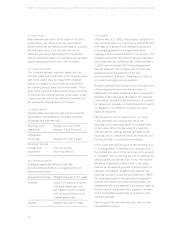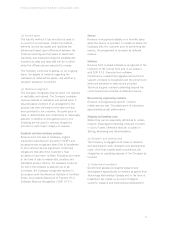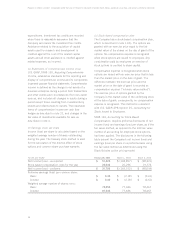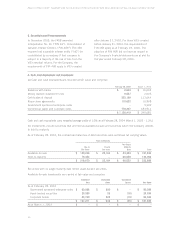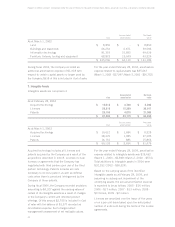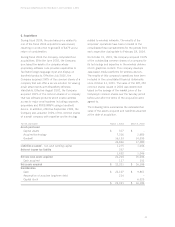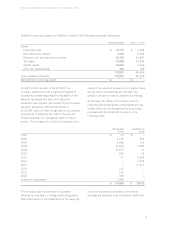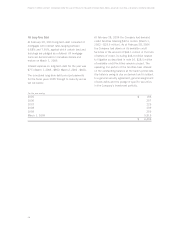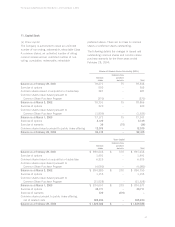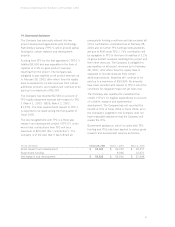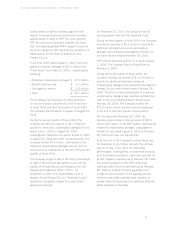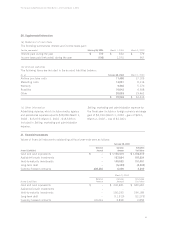Blackberry 2004 Annual Report Download - page 48
Download and view the complete annual report
Please find page 48 of the 2004 Blackberry annual report below. You can navigate through the pages in the report by either clicking on the pages listed below, or by using the keyword search tool below to find specific information within the annual report.
46
Research In Motion Limited • Incorporated Under the Laws of Ontario (In thousands of United States dollars, except per share data, and except as otherwise indicated)
For the year ending
2005 $ 193
2006 207
2007 223
2008 239
2009 256
March 1, 2009 5,315
$ 6,433
10. Long-Term Debt
At February 28, 2004 long-term debt consisted of
mortgages with interest rates ranging between
6.88% and 7.90%, against which certain land and
buildings are pledged as collateral. All mortgage
loans are denominated in Canadian dollars and
mature on March 1, 2009.
Interest expense on long-term debt for the year was
$771 (March 1, 2003 - $852; March 2, 2002 - $661).
The scheduled long-term debt principal payments
for the fiscal years 2005 through to maturity are as
set out below:
At February 28, 2004 the Company had demand
credit facilities totalling $92.6 million (March 1,
2003 - $19.9 million). As at February 28, 2004
the Company had drawn on its available credit
facilities in the amount of $64.1 million in the form
of letters of credit, including $48.0 million related
to litigation as described in note 16. $28.5 million
of available credit facilities remains unused. The
operating line portion of the facilities bear interest
on the outstanding balance at the bank’s prime rate.
Any balance owing is due on demand and is subject
to a general security agreement, general assignment
of book debts and the pledge of specific securities
in the Company’s investment portfolio.


